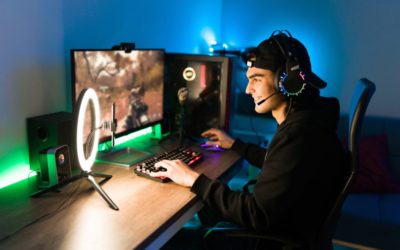Quick Hits
Daily brief research updates from the cognitive sciences

There are many questions still open about COVID and the brain. There is no doubt that long COVID exists, and this can have dramatic impacts on people’s lives. But just how much COVID impacts the brain is unclear – we know that many people suffer cognitive and neurological symptoms – commonly referred to as “brain fog”. But the precise mechanisms are unclear – it is likely a combination of factors that lead can lead to damage in the brain, though one major study was more optimistic noting that many of the conditions are treatable or that underlying previously unidentified conditions were coming to the surface.
In comes this recent study out of the Boston School of Medicine which has aimed to quantify this more precisely. They found that 13% of people who had been admitted to hospital for COVID developed serious neurological symptoms. Most commonly noted was encephalopathy which covers a broad range of symptoms or conditions that leads to impaired neurological functioning. Other conditions such as stroke were much rarer. Though we know that these symptoms can occur even if symptoms are mild, they are much more common with sever illness and worse health outcomes – this includes chances of being admitted to intensive care and being ventilated. There are also racial differences, but this is not clear why.
Of obvious concern is that with the numbers of severe infections being so high, particularly in the USA, this leaves an awfully large amount of people who have had, and still have long COVID and potential long-term cognitive impairment.

Andy Habermacher
Andy is author of leading brains Review, Neuroleadership, and multiple other books. He has been intensively involved in writing and research into neuroleadership and is considered one of Europe’s leading experts. He is also a well-known public speaker speaking on the brain and human behaviour.
Andy is also a masters athlete (middle distance running) and competes regularly at international competitions (and holds a few national records in his age category).
Reference
Anna M. Cervantes-Arslanian, Chakradhar Venkata, Pria Anand, et al.
Neurologic Manifestations of Severe Acute Respiratory Syndrome Coronavirus 2 Infection in Hospitalized Patients During the First Year of the COVID-19 Pandemic.
Critical Care Explorations, 2022; 4 (4): e0686
DOI: 10.1097/CCE.0000000000000686
More Quick Hits
What is the Impact of Gaming on Teenage Mental Health?
Many parents might be worried that gaming will have negative impacts on their children’s mental health – not true. Or only for a small subset…
Why Children Learn More Quickly Than Adults
It might be obvious that kids learn quicker than adults – but this shows for the first time why.
Right, so artificial networks also need sleep!
We need sleep but we are biological entities – that artificial networks improve performance with sleep is pretty fascinating, and insightful.
Making Voting More Effective for Better Decisions
Most of the most important decisions made in business and society are the result of votes – but not all voting methods are equally effective…
We’re Bad at Remembering How Happy We Were
The past ain’t always better – according to this latest research at least…
100 Years of Research Reveal the Most Effective Methods for Learning
New technologies, new research? No, the old methods are the best, and it’s surprisingly simple.






